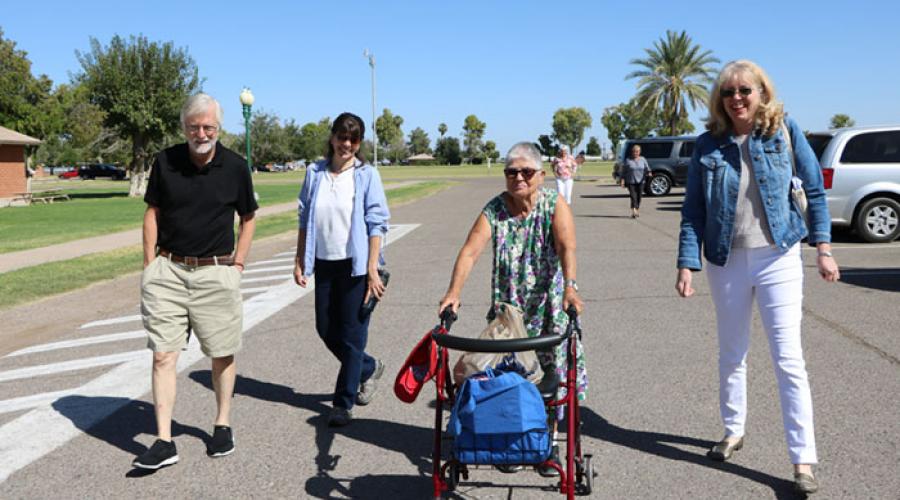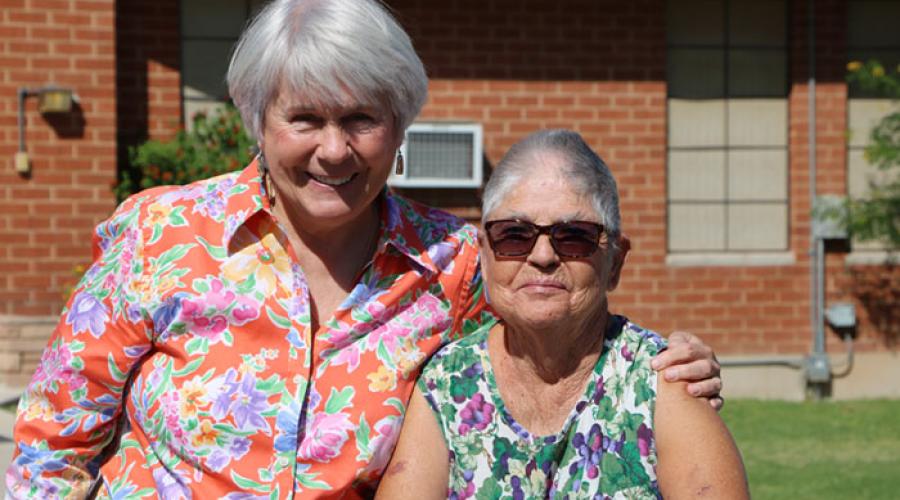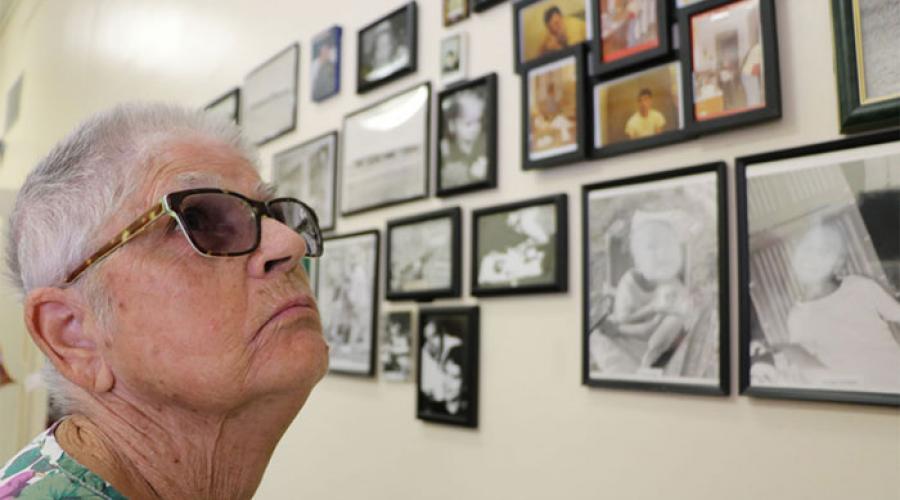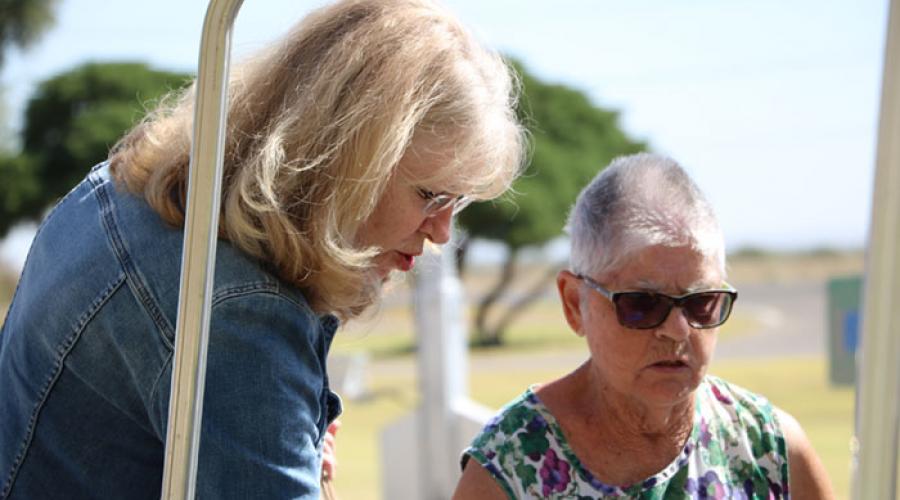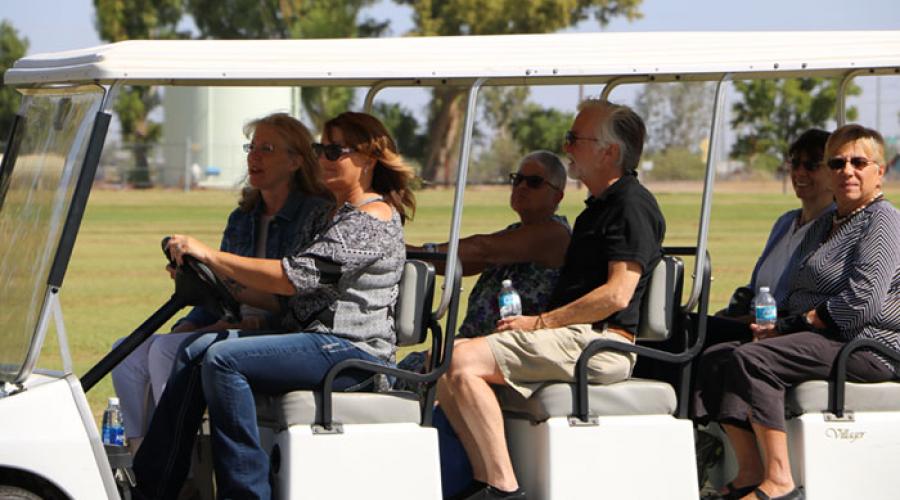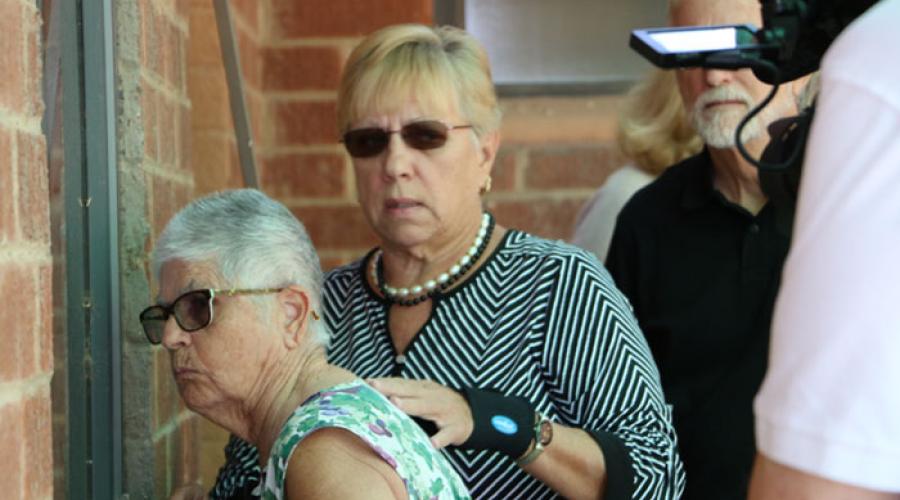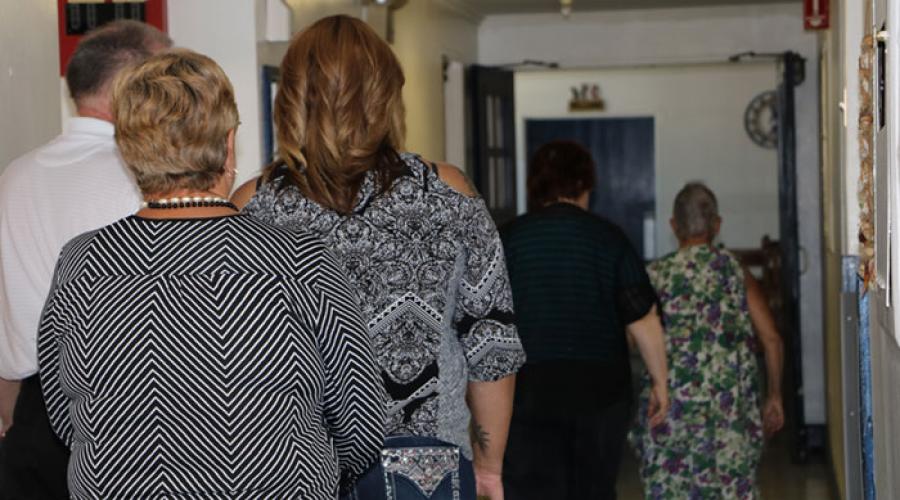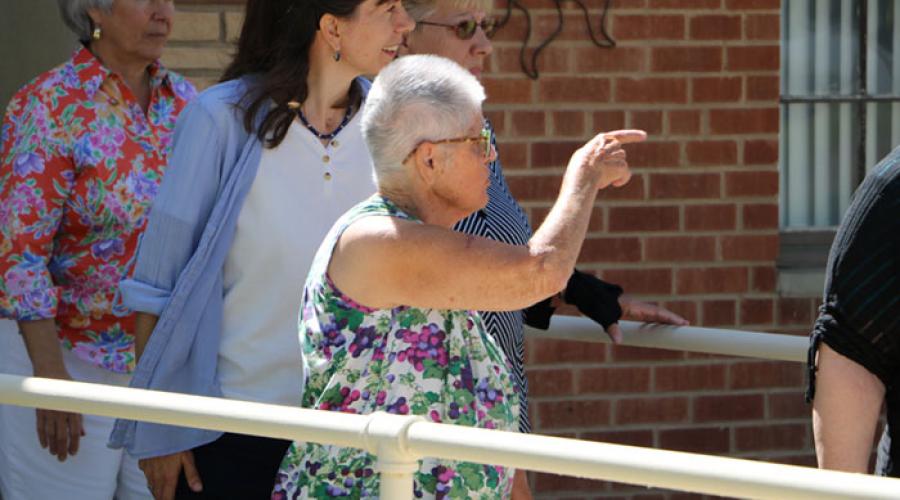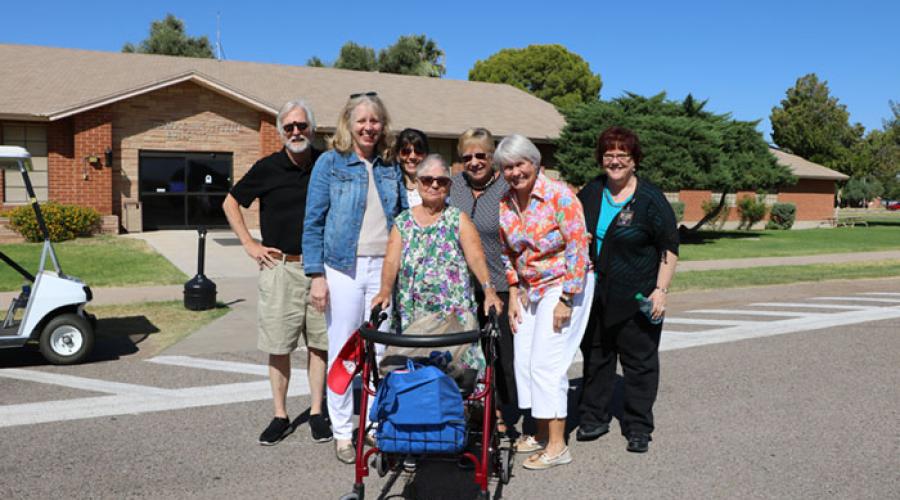Ann Mills: Life After the Children’s Colony
Ann Mills recalls the day she left the Arizona Children’s Colony in Coolidge. She was 30 years old at the time. The date was September 22, 1966—the first day of her independence.
With a cognitive disability and no more than a fifth grade education, Ann packed up the few belongings she had and set off for the Lura Turner Homes in Phoenix, a halfway house for adults with disabilities. She says the odds were stacked against her.
“The grownups there [at the Children’s Colony] told me I would be back before a week is up. They said I was mean and stubborn,” Ann smiled and continued, “I fooled them.”
It’s been 50 years since Ann left the institution she called home as a teenager and young adult. To mark the occasion, she is returning to The Children’s Colony, which was renamed the Arizona Training Program at Coolidge (ATPC). This time, she is not alone. She is accompanied by some of her closest friends.
“We are all excited about walking this journey with Ann,” says Barb Ficker, Ann’s friend of nearly 30 years.
On her tour, Ann notices that the campus has changed quite a bit, but she instantly recognizes some of the buildings. She explains, “There used to be 14 people to a room and the beds were arranged side-by-side.” Ann remembers that punishments for disciplinary issues were harsh and says, “If you were locked up, you would sleep on a room with nothing but a cement bed.”
ATPC was once home to more than 1,200 of Arizona’s disabled and vulnerable citizens. In the mid- 1900’s, it wasn’t uncommon to institutionalize a child born with a disability. Such was the case with Ann. She ended up at the institution because she suffered from Epilepsy and a mild case of Polio. She was sent to the Arizona State Hospital at the age of 13, and three years later, she would end up at The Children’s Colony where she remained until she was 30. Ann says she thought her family had abandoned her.
“I didn’t understand,” she says. “I thought they went away and left me, but later I found out that wasn’t the case.” Ann says her family couldn’t afford to pay for her medication, so they turned her over to the state.
“Today, ATPC is a very different place than when Ann lived here,” explains Dr. Laura Love, Assistant Director for the Department of Economic Security’s (DES) Division of Developmental Disabilities (DDD). She says, “The Department of Economic Security has worked very hard to make it a place that offers our members all the comforts of a traditional home. Our staff are dedicated to finding new ways to providing a safe and comfortable environment, where our members can thrive.”
While living at the Lura Turner Homes, Ann made the most of her newfound independence. She went on to find work and even volunteered at The Arc, a national organization that advocates for individuals with intellectual and developmental disabilities. Ann taught herself how to navigate the public transit system so she could get to and from work. She found faith and a passion for singing in her church choir.
Defying the predictions of pessimists at the Colony, Ann has only returned to ATPC on three occasions: once when she performed for the residents as part of a quartet, once when she returned to visit a friend, and finally on this—her 50th Anniversary of independence.
Fewer than 90 residents remain at ATPC, which is a much different place today. Still, state legislation will force the facility to close its doors permanently within three to five years. The remaining residents will be transferred to community integrated care facilities. The news has been met with both support and opposition. Barb says a solid support system can make all the difference in an individual’s success outside of ATPC. She adds there’s a mutual benefit for everyone involved.
“What I’ve learned from Ann is what you learn from every friend,” she says. “You give to the friendship and every friend gives you something back.”
Today Ann Mills is 80 years old. She’s sharp as a whip and fiercely independent. She offers this final thought on her journey thus far, “To be in the world and learn things like I did – It’s going along, from my point [of view], beautifully!”
By Vielka Atherton


